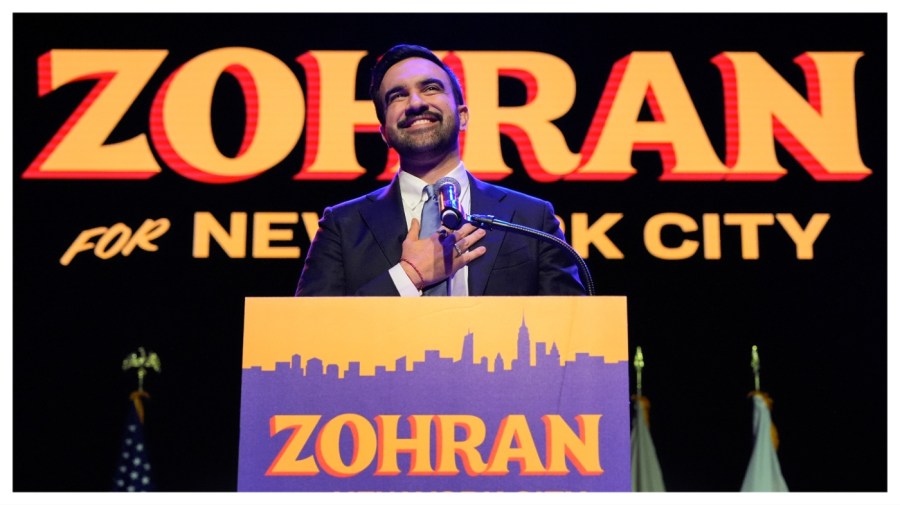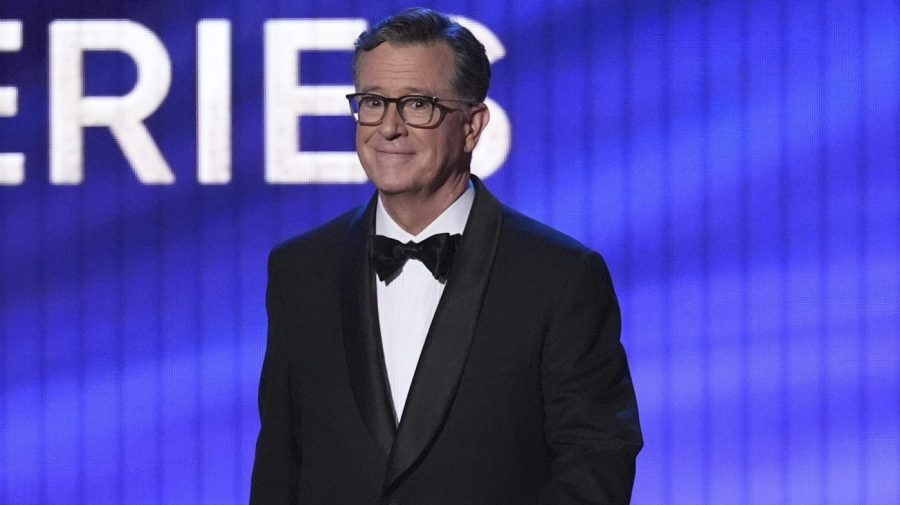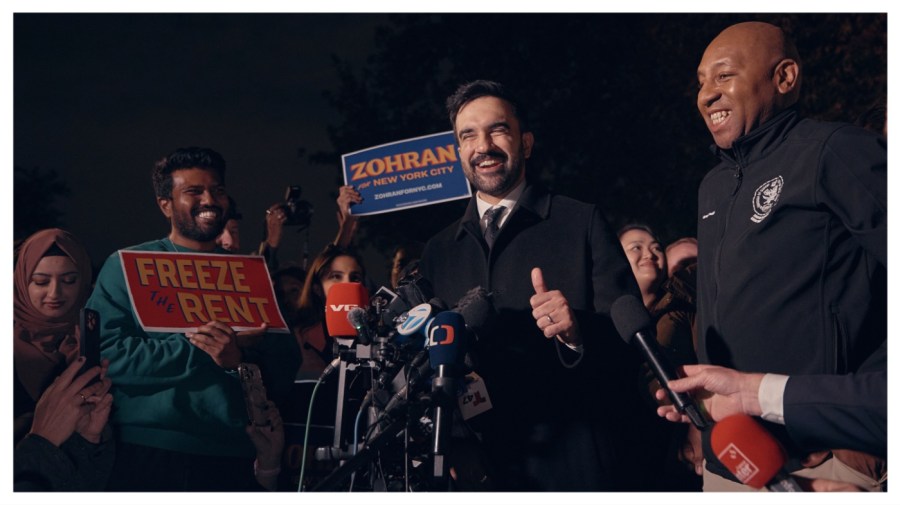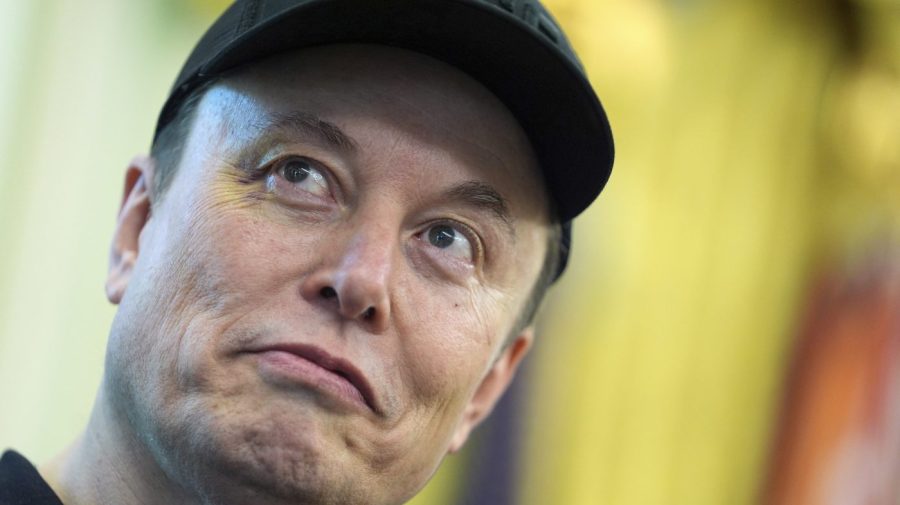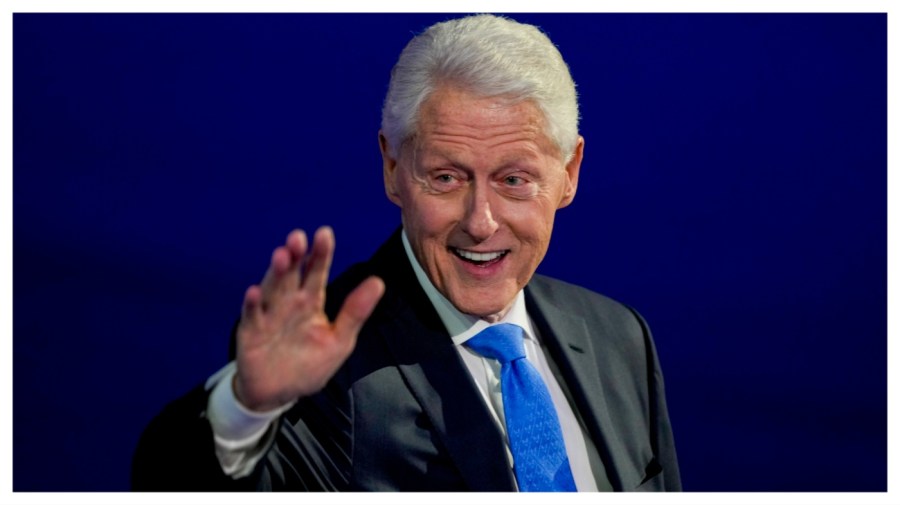Zohran Mamdani’s win in New York City’s mayoral race is a political earthquake.
It caps a stunning rise from obscurity, gives the left one of its biggest triumphs to date and inflames an already-fierce fight within the Democratic Party.
The internal fight was made even sharper when the mayor-elect took to the stage of his victory party in Brooklyn shortly before midnight.
Mamdani threw a flurry of rhetorical jabs, not only against President Trump, whom he called a “despot,” but against his own party leadership, which he cast as corporatist and feeble.
His mayoralty, he promised, would be built on “a bold vision of what we will achieve, rather than a list of excuses for what we are too timid to attempt.”
Moments later, in an even more frontal attack, he added:
“Convention has held us back. We have bowed at the altar of caution and we have paid a mighty price. Too many working people cannot recognize themselves in our party, and too many among us have turned to the right for answers as to why they’ve been left behind.”
His speech, which also name-checked American socialist icon Eugene Debs and India’s first post-independence prime minister Jawaharlal Nehru, is sure to have centrists spluttering in consternation.
But, for the moment at least, the wind is at Mamdani’s back
The 34-year-old state assemblyman vanquished former Gov. Andrew Cuomo twice — first in the June primary and again on Tuesday.
He did so with seeming ease, despite outside groups and billionaires spending wildly to stop him in the race’s closing stages.
The Hill’s data partner Decision Desk HQ called the race for Mamdani minutes after polls closed at 9 p.m. Eastern time.
As of midnight, Mamdani was hovering just above 50 percent of all votes cast and leading Cuomo by nine points, with 91 percent of ballots counted. Republican candidate Curtis Sliwa was a distant third at seven percent.
Turnout across the nation’s most populous city topped two million, the highest figure in decades. That’s proof, at least in the eyes of Team Mamdani, that their candidate’s brand of politics ignited new hope, drawing first-time voters to the polls.
“People are mobilized by this vision,” Rep. Alexandria Ocasio-Cortez (D-N.Y.) told NBC News during an interview from Mamdani’s event on Tuesday night.
The congresswoman, a potential 2028 presidential candidate who had appeared at a huge rally with Mamdani and Sen. Bernie Sanders (I-Vt.) in the mayoral campaign’s closing stretch, asserted that the big win showed Democrats could find success by “delivering a new message.”
In Mamdani’s case the centerpiece of the message — and one that he focused on with relentless discipline — was affordability.
He promised New Yorkers free childcare for infants aged five and under, free bus journeys, a rent freeze on rent-stabilized apartments and the creation of a government-run grocery store in each of the city’s five boroughs.
He promised to pay for the program by upping the city’s corporate tax rate so that it is on a par with neighboring New Jersey and raising the city income tax rate for those earning $1 million or more by two percent.
But Mamdani’s more assertive, defiant tone also encompassed another issue that came to define the campaign: Israel and the Palestinians.
Mamdani describes Israel’s actions in Gaza as a genocide. He has said that, as mayor, he would order the arrest of Israeli Prime Minister Benjamin Netanyahu, who is wanted by the International Criminal Court on war crimes charges.
By contrast, Cuomo announced last November that he had joined Netanyahu’s defense team. Trump, for his part, accused Mamdani on the morning of Election Day of being a “Jew hater” and said any Jewish person who voted for him was “stupid.”
In a more general sense, Mamdani’s more assertive stance was plainly welcomed by many Democrats. Nationwide, several polls have shown Democratic voters more dissatisfied with their party than Republicans are with the GOP.
It’s hardly surprising, given all this, that Democratic leadership has kept Mamdani at arm’s length.
Senate Minority Leader Charles Schumer (D-N.Y.) never endorsed Mamdani and even avoided telling reporters whom he had voted for in the mayor’s race on Tuesday. House Minority Leader Hakeem Jeffries (D-N.Y.) waited until the day before early voting began before offering a somewhat lukewarm endorsement.
The leadership and its allies fear that Mamdani’s brand of left-wing politics will come to be seen as emblematic of the party at large. The centrists contend leftism will play far worse nationwide — and in purple districts and states — than in the liberal strongholds of Manhattan and Brooklyn.
This, they fear, will condemn the party to painful defeats.
Trump has pushed similar ideas, suggesting that a Mamdani victory would rebound to the GOP’s advantage. In a Sept. 29 social media post, the president insisted that the mayor-elect could “prove to be one of the best things to ever happen to our great Republican Party.” [LINK: https://truthsocial.com/@realDonaldTrump/posts/115287641147640374]
Democrats who favor a more modulated approach than Mamdani also scored meaningful victories on Tuesday.
In the night’s two big gubernatorial races, centrist Democratic candidates won easily. Rep. Mikie Sherrill (D-N.J.) outperformed polls by a significant margin in defeating Republican Jack Ciattarelli by about 12 points in New Jersey. Former Rep. Abigail Spanberger (D-Va.) coasted to an even larger victory over state Lt. Gov. Winsome Earle-Sears (R) in Virginia.
Spanberger’s speech was many miles removed from Mamdani-style rhetoric.
“Virginia chose pragmatism over partisanship,” she said, promising an emphasis on “problem-solving, not stoking division.”
Mamdani’s win was huge. In its aftermath, the battlelines in the struggle for the Democratic Party’s future are clearer than ever.
The Memo is a reported column by Niall Stanage.










